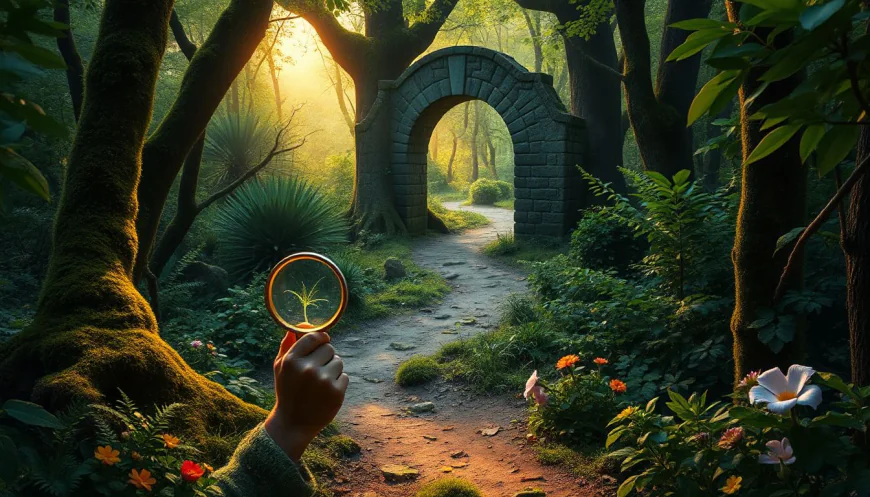Discovery as a Powerful Method for Finding Answers: Unlocking Knowledge and Innovation
Discovery is a natural part of human life. It helps us learn new things, solve problems, and grow. Whether we're exploring new ideas or solving complex issues, discovery complements what we already know. It’s an ongoing process that fuels innovation, shapes our understanding, and guides decision-making. This article dives into how discovery acts as a key way to find answers in many areas of life.

The Nature of Discovery: Understanding Its Role in Finding Answers
What is Discovery?
Discovery is not just about finding something new. It’s about exploring and observing without a set plan. Unlike asking questions directly or investigating in a structured way, discovery often happens when you look around and see what surprises you. It’s an open-ended process that opens doors to new insights. Think of discovery like wandering through a forest, where you stumble upon hidden paths or rare plants unexpectedly.
The Evolution of Discovery Over Time
Throughout history, discovery shaped history and science. Early explorers like Columbus or Magellan searched for new lands. Later, discoveries in science, like penicillin or DNA, changed how we understand the world. Today, technology like data analytics and AI help us uncover answers more quickly. Discovery has become more precise and faster, but it still relies on curiosity and exploration.
Why Discovery Matters in Today’s World
In today’s world, many industries depend on discovery. For example, tech companies innovate by discovering what customers really want. Healthcare researchers find new medicines through unexpected discoveries. When scientists noticed bacteria killing other bacteria, it led to antibiotics. Studies show that over 75% of major breakthroughs in science involved a moment of surprise or unexpected finding. Discovery keeps pushing us forward in areas like medicine, education, and business.
Methods of Discovery: Techniques to Uncover Answers
Observation and Empirical Evidence
Observation is one of the simplest ways to discover. It involves paying close attention to details and collecting data. For example, Darwin studied finches’ beaks and noticed differences among species, which led to his theory of evolution. Similarly, Fleming observed mold killing bacteria, leading to the discovery of penicillin. Vigilant observation remains one of the most powerful discovery tools.
Experimentation and Exploration
Trying different ideas helps reveal what works and what doesn’t. Experimentation is often a game of trial and error. Scientists test hypotheses, learn from mistakes, and refine their theories. Good experimentation involves testing small changes, documenting results, and being open to unexpected findings. This process can uncover answers hidden behind initial assumptions.
Innovation and Creative Thinking
Sometimes, we need to think outside the box to find answers. Creative problem-solving unlocks new ideas and discoveries. Techniques like brainstorming or lateral thinking encourage new perspectives. Design thinking, which focuses on understanding user needs, also sparks innovation. These methods help turn vague ideas into real solutions.
Collaboration and Serendipity
Working with others accelerates discovery. Sharing ideas often leads to unexpected breakthroughs. Chance encounters can bring fresh insights. Charles Goodyear's discovery of vulcanized rubber happened partly by accident. Building open environments where knowledge flows freely increases chances of serendipitous results. Keep an eye out for surprises — they might hold the key to answers.
Discovery in Different Fields: Real-World Applications
Scientific Research and Innovation
Science depends on discovery. Many modern breakthroughs come from the unexpected. For instance, discovering X-ray technology or the structure of DNA involved surprise findings. Data shows that about 80% of scientific breakthroughs involve some form of chance or unexpected results, proving how discovery drives progress.
Business and Entrepreneurship
Successful companies use discovery to develop new products and services. Amazon, for example, discovered customers wanted quick delivery, leading to its fast shipping model. Companies that listen to customer feedback and try new ideas can find new markets and improve their offerings. Rapid prototyping and constant testing are habits that encourage business discovery.
Personal Development and Learning
Everyone can use discovery for self-improvement. Journaling, self-reflection, and trying new hobbies help uncover what truly motivates and interests you. These methods turn learning into an ongoing adventure. Knowing yourself better is a discovery that leads to better decisions and happier life choices.
Technology and Data Science
Advances in AI and data science have unlocked answers in medicine and engineering. By analyzing huge data sets, scientists discover new drug targets or patterns they never expected. For example, big data analysis helped identify new treatments for cancer, showing how technological discovery can change lives.
Challenges and Limitations of Discovery
Navigating Uncertainty and Ambiguity
Discovery doesn’t always follow a straight path. It involves risks and unknowns. Sometimes surprises lead to dead ends. The key is staying flexible and open-minded. Accept failure as part of the process and learn from setbacks.
Avoiding Confirmation Bias
People tend to see only what confirms their existing beliefs. This bias can steer discoveries into false directions. To stay objective, ask tough questions and test opposing ideas. Be skeptical of your own assumptions.
Ethical Considerations
Discovery must come with responsibility. Ethical issues rise when science or technology affects lives. Genetic editing, AI, and privacy all have dilemmas. It’s crucial to think about long-term consequences and act responsibly.
Conclusion
Discovery is a powerful way to find answers across many areas. It keeps curiosity alive and encourages us to explore beyond what we know. By observing, experimenting, thinking creatively, and working with others, discovery pushes progress. Even with challenges, it remains the best way to unlock new ideas, solve problems, and grow. Constant discovery fuels progress, making it an essential tool for today's complex world. Stay curious and open to the unexpected — the next answer might be just around the corner.



 VARSHITHA
VARSHITHA